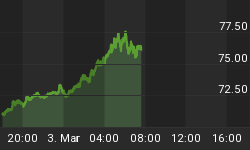Richmond Fed President Lacker is the first Fed official to speak publicly about the recent discount rate cut, liquidity issues and the prospects for FOMC federal funds rate policy. I would assume that his comments were cleared by Fed Chairman Bernanke before being delivered to us. Lacker could have saved his breath about discount policy and liquidity challenges. What enquiring minds really want to know is whether the FOMC intends to cut its federal funds rate target at or before its September 18 meeting. Of course, President Lacker did not comment directly on this. But he reiterated the Poole rhetoric that the FOMC saw no need to cut its fed funds rate target unless it had evidence that the financial market turmoil was spilling over into real economic performance. Although allowing how the risks to the real economy had increased in recent weeks, Lacker remained sanguine about the outlook for continued growth.
Lacker's comments suggest to me that the Bernanke FOMC is more reluctant to cut the federal funds target in the face of financial market turmoil than was the Greenspan FOMC. I think the Federal Reserve is a little bit ashamed of the funds rate cuts back in the fall of 1998 when LTCM was experiencing its liquidity challenge. And to be fair to Greenspan, back in the fall of 1998, the U.S was clearly the only global economic locomotive out there. Today, for the time being, many other regions of the world economy appear to be doing quite well.
Although reluctant to cut its fed funds target, this doesn't mean that the FOMC won't cut short of a Poole calamity. But it needs information that post-August 10 economic activity has taken a decided turn for the worse. The University of Michigan early-August consumer sentiment survey is suggestive of a turn for the worse, but surveys of this type are notoriously unreliable. The weekly ICSC-UBS retail sales survey perked up a little for the week ended August 18, with the index increasing a modest 0.25% after declines in each of the previous two weeks. But this survey, too, is not very reliable. Perhaps the most important upcoming reports for guiding near-term FOMC policy will be August car/truck sales and the August ISM manufacturing survey. GM reported better-than-expected sales for the first ten days of the month. But if their and their competitors' sales have fallen off a cliff in the remaining 20 days of August, then the FOMC might opt for a 25 b.p. cut in its funds rate target at the September 18 meeting. Similarly, a sharp drop in the ISM manufacturing index could be the catalyst for a cut in the FOMC's funds rate target.
I am confident that the FOMC will lower its federal funds rate target before year-end, but I am not as confident it will occur on or before the September 18 FOMC meeting. As mentioned above, the FOMC appears reluctant to cut. It very well may be that the evidence that the U.S. economy is flirting with a recession is not forthcoming until after the September 18 FOMC meeting. As a result, I continue to believe that the FOMC's fed funds rate target will not be lowered de jure until its October 30-31 meeting. If I am right, there is going to be severe "disappointment" in the financial markets at 2:15 pm EDT on September 18, which, in turn, will increase the probabilities of an October 31 cut in the target rate.
















